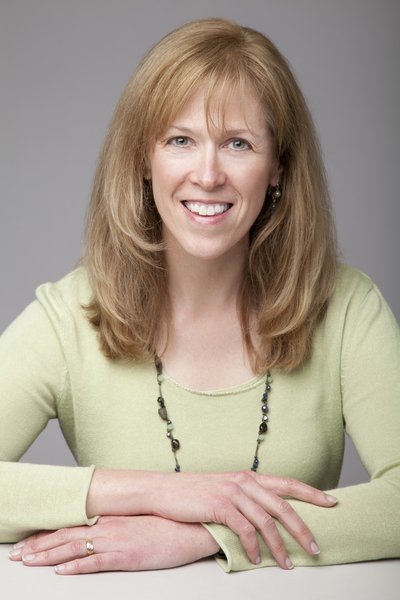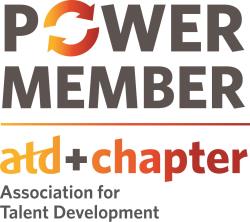Our mission is to empower professionals to develop knowledge & skills successfully.

| ||||||
 | ||||||
March 2017 Issue | ||||||
| President's Message | ||||||
|
In September of 2009, the day for my climb of Mt. Rainier had finally arrived. All the preparation and training I did (few people climb Mailbox for fun) had come down to this moment. Our team was smaller than the day before; 3 people didn’t make it to Camp Muir. But those who did huddled in the shelter and listened to the winds howling outside. We put on our gear and got ready to head for the top of the mountain. Part way across the first snowfield, I saw a flash that I thought might be from a camera. When I saw a second flash moments later, I realized it was lightening. My desire to return to safety quickly replaced my desire to summit and I was paired with another guide to take me back to the shelter. Within 5 minutes, all 4 rope teams turned around due to the electricity in the air. We descended back to Paradise wearing crampons over the snow field that had frozen into ice. After we made it back to the basecamp, we debriefed the climb with our leader. We talked about what we had learned, and he shared that he didn’t reach the summit until the 5th attempt on the mountain. Rather than leave us with the impression that we would never succeed, he got us thinking about how much better equipped we were to take on the challenge. Rather than seeing this as a failure, I left with a growth mindset by viewing the setback as an opportunity to learn from the experience. Our guides story got me thinking of ways I could take on this challenge again. Stanford Psychology Professor Carol Dweck studies motivation, personality, and development. She has identified two types of mindsets: People with growth mindsets believe that intelligence, skills, and abilities can be developed. They enjoy challenges, strive to learn, and consistently see potential to develop new skills. Conversely, people with fixed mindsets view talent as a quality that they have or do not have. In her research, Dweck has found “organizations with growth mindsets build cultures that are more collaborative and innovative. Managers and leaders with growth mindsets are willing to invest in the development of their employees. They don’t fear setbacks or failures. They tell stories that demonstrate a growth mindset. I once worked with an executive who told a story of how a demo he was responsible for crashed during a television broadcast. While he heard about it at the time, the company still believed in him enough to keep and promote him. It was refreshing to hear a leader share his own mistakes and how he learned from them. So how can you cultivate this type of mindset? In her article on td.org, Claire Von Ins suggests signs of a learning mindset. One of my favorite approaches is to learn by embracing new challenges; when I have new experiences, like climbing, I’m able to stay open to what I’m learning. I can take these lessons and apply them to situations where I am challenged more with performance goals and a fixed mindset. I also get inspiration when I learn from others. What is your favorite approach to cultivating a learning mindset? How can ATD Puget Sound encourage the development of a growth mindset? I’d love to hear from you. Keep on learning! Janet Williams Hepler President | ||||||
| Chapter Special Events | ||||||
| Learnapalooza 3.0 Save the Date! Friday May 19th 9 AM-3 PM A daylong professional development experience Learn-a-palooza returns, with a new slate of Speed Learning SMEs, keynote speaker, networking, and afternoon deeper dives! Programming features:
Details and registration page to come. Updates in your inbox soon! Thanks for coming out for the Allied Professionals Networking event February 1st! We enjoyed collaborating with our sister professional organizations to bring you this event and appreciate the feedback attendees shared. Reported highlights included:
Our members shared... "Networking was the highlight of the event. I met *exactly* the type of person I was hoping to meet. Thanks for the red dots!" __________________________________________________________________________ We appreciate Pivotal Presentations and Connie Miller sponsoring this event. Looking forward to seeing you at next year's Allied Professionals Networking event! | ||||||
| Chapter Meeting | ||||||
| Our March Chapter Meeting is on Tuesday, March 21st from 7:30 - 9:30 am is a morning chapter meeting! Register to join us for a discussion on gender issues in the workplace. Transgender and Gender Nonconforming employees have been part of workplaces for many years, although the topics may still be new to some employers and employees. There is a strong body of supportive work in place, and this Presentation/Discussion is designed to offer an overview of policies and procedures to assist all parties. | ||||||
| Volunteers Needed | ||||||
| Special Events Recruiting Volunteers Want to help put on one or more of ATD Puget Sound's special events in 2017? We're looking to fill a few key positions. View Position Descriptions and details here. Contact membership@atdpugetsound.org to learn more about these and other open opportunities.
We also welcome your suggestions for keynotes and other speakers you want to hear from. Share your thoughts with specialevents@atdpugetsound.org | ||||||
| Interest Groups | ||||||
| Interested in joining a small group around various talent development interests? Join one of our three interest groups around topics like member networking, learning and technology, or South Sound professionals. Interest group and partner events on our calendar for March include:
| ||||||
| Power Membership | ||||||
| Power Membership offers members twice the support, twice the resources, and twice the networking than just one membership.
ATD membership provides the tools you need for success. Chapter membership applies those tools to your organization and community. Together you are a Power Member! Learn more about Power Member benefits here. | ||||||
| Copyright © 2017 ATDpugetsound. All rights reserved. Contact email: contact.us@atdpugetsound.org |
| You are receiving this message because you opted in at www.atdpugetsound.org |



